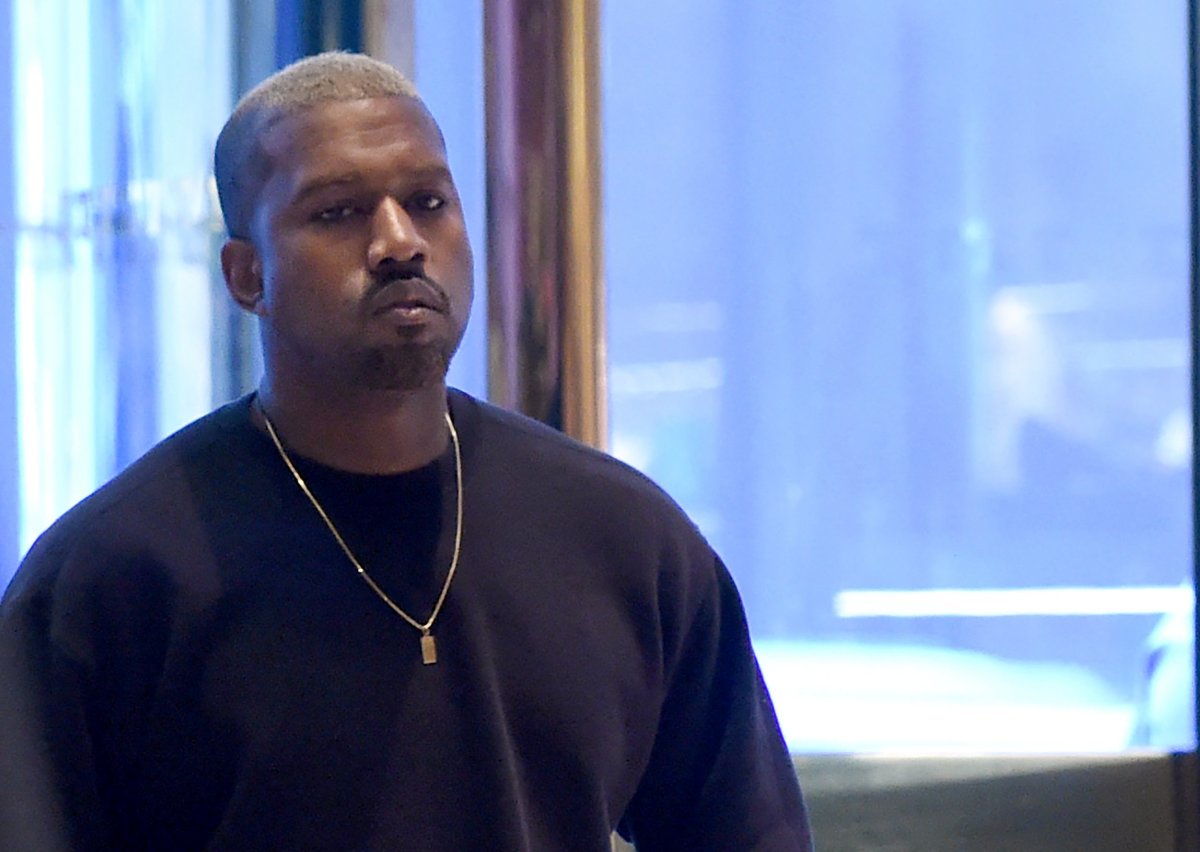Wearing a "Make America Great Again" hat, rapper Kanye West took to Twitter on Sunday to rail against the 13th Amendment, calling it "slavery in disguise."
The rapper made the comments following his appearance on Saturday Night Live in which he donned a "Make America Great Again" hat and delivered an unexpected speech defending his support of President Donald Trump.
On Sunday, the rapper posted a photo of himself in ing his MAGA hat, tweeting: "This represents good and America becoming whole again.

"We will no longer outsource to other countries. We build factories here in America and create jobs. We will provide jobs for all who are free from prisons as we abolish the 13th Amendment," West wrote, before adding: "Message sent with love."
Two hours later, after receiving backlash over the comment, the rapper tweeted: "The 13th Amendment is slavery in disguise, meaning it never ended. We are the solution that heals."
He then clarified his comments 20 minutes later, writing: "Not abolish, but let's amend the 13th Amendment."
Is the 13th Amendment an Extension of Slavery?
Passed by the Senate on April 8, 1864, and later by the House of Representative on January 31, 1865, the 13th Amendment to the U.S. Constitution saw both slavery and involuntary servitude abolished—except as punishment for a crime.
While it is unclear what specific aspect of the 13th Amendment West hoped to see amended, his call for jobs to be provided to "all who are free from prisons" appeared to hit on a growing criticism of the amendment.
Indeed, a number of prominent civil rights activists have drawn a link between the U.S. penal system and slavery, with many seeing the 13th Amendment's allowance of "involuntary servitude" as punishment for a crime as an extension of slavery.
this represents good and America becoming whole again. We will no longer outsource to other countries. We build factories here in America and create jobs. We will provide jobs for all who are free from prisons as we abolish the 13th amendment. Message sent with love pic.twitter.com/a15WqI8zgu
— ye (@kanyewest) September 30, 2018
The argument was one that American film director Ava DuVernay sought to explore in her 2016 documentary, The 13th, which took a sharp look at how the amendment's "involuntary servitude" caveat had affected black communities in the U.S.
In the documentary, several prominent public figures, including political activist Angela Davis and news commentator and author Van Jones, make the claim that since the abolishment of slavery, that loophole had been exploited, allowing for the disproportionate incarceration of black people.
By the Numbers
According to the NAACP, black Americans are incarcerated at more than five times the rate of white Americans, with black Americans constituting 2.3 million, or 34 percent of the total 6.8 million prison population in 2014.
Though blacks and Hispanics make up approximately 32 percent of the U.S. population, they comprised 56 percent of all incarcerated people in 2015, according to the the NAACP, which states on its website that if black and Hispanic people were incarcerated at the same rates as white people, prison and jail populations would decline by almost 40 percent.
DuVernay's documentary, which was nominated for an Academy Award for Best Documentary Feature at the 89th Academy Awards and won the Primetime Emmy Award for Outstanding Documentary or Nonfiction Special at the 69th Primetime Emmy Awards, asks viewers to consider the intersection of race, justice and mass incarceration in the U.S.

The same argument is also espoused in Michelle Alexander's 2010 best-selling book, The New Jim Crow: Mass Incarceration in the Age of Colorblindless, which argues that mass incarceration exists as one of several "major racialized systems of control" in the U.S., effectively ensuring "the subordinate status of a group defined largely by race."
In her book, Alexander draws connections between the U.S. penal system, slavery and Jim Crow, the state laws that once oversaw the segregation of white and black people, ensuring the oppression of the latter.
The author argued that mass incarceration had "metaphorically" become "the new Jim Crow," asserting that the disproportionate incarceration of black people represented an extension of Jim Crow.
While West was far from the first to criticize the 13th Amendment, the rapper's initial calls for it to be abolished have drawn significant backlash, with actor Chris Evans slamming the musician for his "terrifying" comments.
"There's nothing more maddening than debating someone who doesn't know history, doesn't read books, and frames their myopia as virtue," Evans wrote on Twitter, sharing West's initial tweet.
"The level of unapologetic conjecture I've encountered lately isn't just frustrating, it's retrogressive, unprecedented and absolutely terrifying," he said.
Many of West's fans expressed confusion over the rapper's comments, although some were quick to point out that West was likely referring to the amendment's "involuntary servitude" caveat.
Uncommon Knowledge
Newsweek is committed to challenging conventional wisdom and finding connections in the search for common ground.
Newsweek is committed to challenging conventional wisdom and finding connections in the search for common ground.
About the writer
Chantal Da Silva is Chief Correspondent at Newsweek, with a focus on immigration and human rights. She is a Canadian-British journalist whose work ... Read more
To read how Newsweek uses AI as a newsroom tool, Click here.








